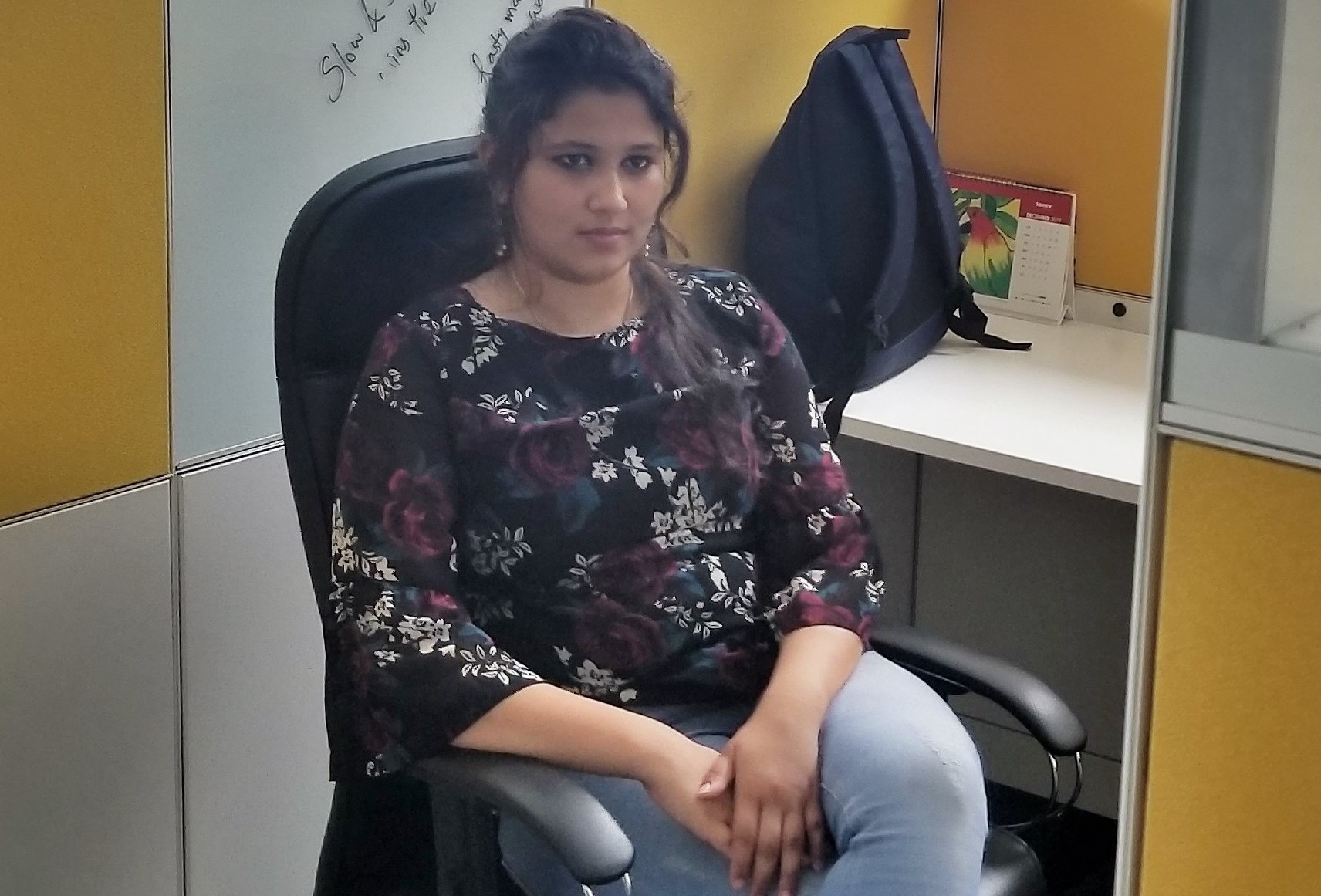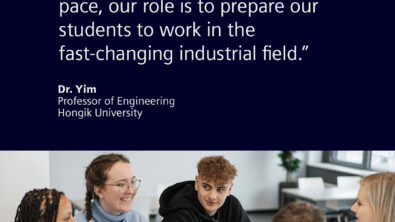Student Interns Beyond the Classroom: Nadia Farheen

Nadia Farheen, an application engineer intern at Mentor Graphics, knows that the mix of her own interpersonal skills and technical know-how is crucial to thrive in the space of electronic design automation. As an electronics and communication student was working in Bangalore, India, she became interested in the interfaces of VLSI and applied to the higher education program for Mentor Graphics and was offered an application engineering intern position. Read on to learn more about her and the projects she has been working on.

Where did you attend college, what was your major, and how did you become interested in your field of study?
I am Nadia Farheen intern in the EBS team at Mentor Graphics, Bangalore. I completed my B.E in electronics and communication from GSSSIETW, Mysore where I hail from. I chose engineering inspired by my father who is a civil engineer. I always admired him and wanted to become an engineer like him. At present I am pursuing my M. tech in VLSI from Amrita school of engineering, Bangalore. I chose VLSI because I was fascinated by electronics and wanted to explore it in depth gaining technical knowledge while solving problems.
What was the name of the program you were in at Mentor Graphics and how long have you been with the company?
At the end of 1st year of M. Tech I got the opportunity to be part of the higher education program (HEP) at Mentor Graphics, Bangalore. This program was focused on functional verification of electronic systems using System Verilog. It was a six week program and I enjoyed working in the environment at Mentor Graphics. This exposure motivated me to be a part of this organization and contribute to its growth. I never knew that the day I thought to be my last at Mentor Graphics at the end of HEP wouldn’t be so and I would be back.
During my 2nd year of M.Tech, I applied for various internships through college and got selected for Bosch (RBEI) in the automobile domain. Grabbing this learning opportunity I got to study about communication protocols such as CAN under the electronic power steering (EPS) dept. At that time I wasn’t expecting a call from Mentor Graphics, but due to the sheer stroke of luck I was interviewed for the electronic board systems (EBS) team at Bangalore. The interview consisted of questions from basic electronics I learned during my B.E and the projects I had mentioned in my resume. I was super excited bagging this opportunity.
What are 2 or 3 key things you learned while interning for Mentor Graphics?
With an increase in the number of electronic gadgets being used, there is a never seen before requirement of good printed circuit boards (PCB) which are at the heart of this growth. There is virtually no electronic device without a PCB. Weather it is a cell phone, automated aircrafts, TVs, music players and other devices ranging from medical, military to industrial applications
Designing PCBs require a lot of research and development as they are specific to a design and need to be of high quality. There is need to pack more circuitry into a smaller area which can be an erroneous process if not done with utmost efficiency. PADS Professional Student edition is a tool which helps to address this issue as it offers a fully featured front-to-back design flow to produce quality designs that can be easily manufactured. With PADS professional tool the number of design re-spins can be reduced, since it offers features so that the functionality can be checked at an early stage of the design process, reducing the number of errors that can occur at a later stage in the design process which would definitely be expensive and time consuming. Along with other projects I was assigned the DDR3 project, which enabled me go through the entire flow of PCB design and learn how a PCB is manufactured from the bill of material (list of components needed to manufacture an end product). In this project after the designing of DDR3 schematic from its layout the design was exported to HyperLynx LineSim tool which is integrated with PADS Professional student edition. HyperLynx LineSim helps check the signal integrity issues and simulating the design to obtain results as specified in the datasheet.
After completion of this project, I prepared a document which discusses in detail about the various features of the PADS Professional student edition tool. Thus enabling any student with a basic understanding of PCB design to imagine, create and implement any application of her own. Apart from PADS PRO Tool I also worked on Xpedition AMS and HyperLynx tool.
Besides the technical work at Mentor Graphics I also got the opportunity to interact with colleagues from different backgrounds and make long term friendships. This gave me an insight into different teams which enabled me to understand the intricacies of different projects at Mentor Graphics.
How is your team adapting to the COVID-19 pandemic and how is that affecting your work?
Another valuable experience I gained during my internship involved “work from home” due to the COVID-19 pandemic which has been wreaking havoc on the world. I felt gloomy with the proposition of “work from home” as it meant curtailed interaction with my team and friends at the office. Besides I also missed the ambience of our office, which had always motivated me to excel at anything I did. But the ensuing cacophony of this pandemic didn’t affect my work or in any way bog down my spirits as I was virtually connected with my team which ensured that the project deliverables were on time. After the successful completion of my project I also had the opportunity to deliver a webinar on it. I learnt a lot during my time at Mentor Graphics, this internship provided me with a huge repertoire of knowledge I would not have gained in the classroom alone and the skills I learned shaped my practical understanding of concepts based on the theoretical knowledge I had acquired in college.
Comments
Leave a Reply
You must be logged in to post a comment.



Is it possible to learn online in this pandemic period? to learn online have we to pay any amount? Kindly clarify